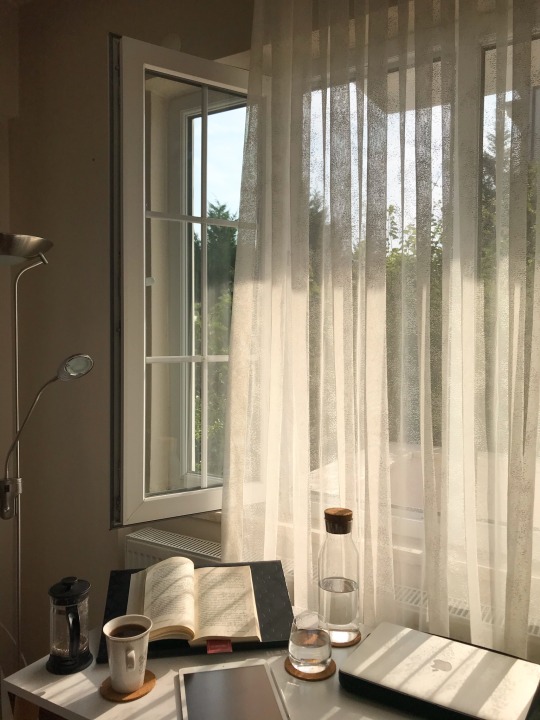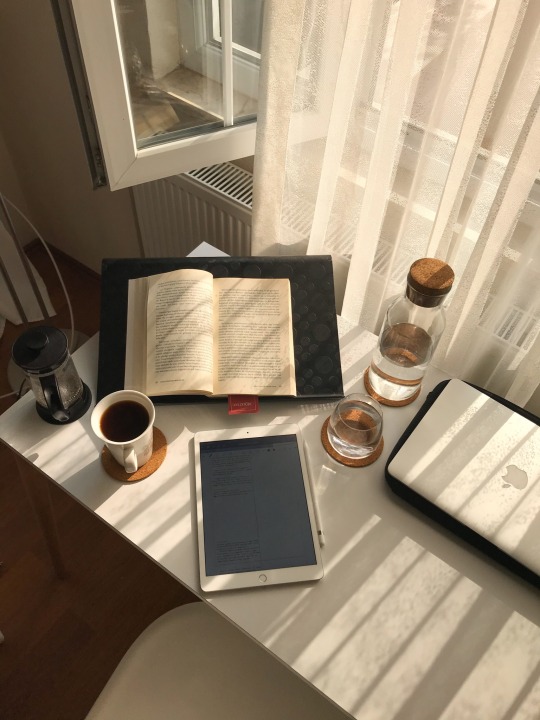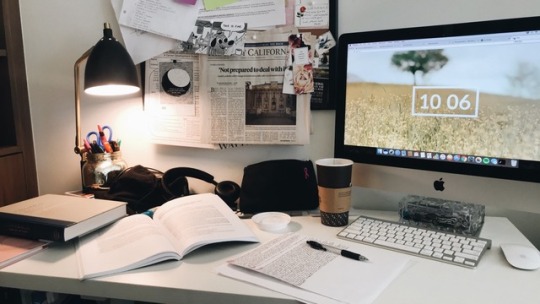ezgi // 26 // blog for motivation for studying and practicing german
Don't wanna be here? Send us removal request.
Text
learn german with songs | pamela by $oho bani & ericson
Sie war so lange nicht verliebt in einen Mann // Und sie wär' so gerne wie Pamela und Tommy Lee // Und ich sag' ihr: „$OHO BANI, ich bin dein Mann“ // Und es war mal ein Mann Der erzählte tagelang Von dem, was er so kann // Und außerdem konnt' er singen // Ja, sie liebte sein' Gesang // Und weil sie sich nicht selber liebt, kam sie mit ihm zusammen
She hasn't been in love with a man for so long And she would love to be like Pamela and Tommy Lee And I tell her: "$OHO BANI, I am your man" And there was once a man Who talked for days About what he can do (you-you, you, you) And besides, he could sing Yes, she loved his singing And because she doesn't love herself, she got together with him
0 notes
Text
German folk music / traditional children's songs
Here's a little playlist i made of some old German folk songs that we probably all sang as children:
And here are some other nice playlists and albums i found:
73 notes
·
View notes
Text
Classic German Children's Songs
Maybe you're learning German, maybe you're doing research for god knows what, but here is a list of some classic German children's songs and nursery rhymes
Alle meine Entchen
Alle Vögel sind schon da
Auf der Mauer, auf der Lauer
Brüderchen komm tanz mit mir
Das Wandern ist des Müllers Lust (for hiking/rambling)
Der Kuckuck und der Esel
Der Mond ist aufgegangen
Ein Männlein steht im Walde
Ein Vogel wollte Hochzeit machen
Es klappert die Mühle am rauschenden Bach
Fuchs du hast die Gans gestohlen
Grün sind alle meine Kleider
Guten Abend Gute Nacht
Hänschen Klein
Hejo, spann den Wagen an
Ich geh mit meiner Laterne ( for St Martin's Day)
Im Frühtau zu Berge (for hiking/rambling)
Kein schöner Land
Laterne, Laterne (for St Martin's Day)
Matten, Matten Meeren (for St Martin's Day)
Was müssen das für Bäume sein
Weißt du wieviel Sternlein stehen
Wer will fleißige Handwerker sehn
Bonus: for modern classics check out Rolf Zuckowsi and Gerhard Schöne
92 notes
·
View notes
Photo


2021.09.22 // 17:00
walking through wsp and working on hw between classes at think coffee on mercer st. …very nyucore of me lol
pic: washington square park, manhattan, n.y.
1K notes
·
View notes
Text
Prepositional Verbs #1
A — Akkusativ
auf + A
hoffen auf + A — (to) hope for = Wir hoffen auf besseres Wetter.
warten auf + A — (to) wait for = Ich warte auf den Bus.
bestehen auf + A — (to) insist on = Ich bestehe auf einer Erklärung.
sich vorbereiten auf + A — (to) prepare oneself for = Ich bereite mich auf die Prüfung vor.
sich freuen auf + A — (to) look forward to = Nächstes Wochenende kommen meine Schwestern zu Besuch. Ich freue mich auf sie!
für + A
sorgen für + A — (to) care for = Ich muss für eine große Familie sorgen.
sich interessieren + A — (to) be interested in = Ich interessiere mich auch für griechische Mythologie.
über + A
sprechen über + A — (to) talk about = Deine Freunde sprechen nur über Fußball!
sich freuen über + A — (to) rejoice/be happy about = Vielen Dank, ich freue mich sehr über das Geschenk!
an + A
denken an + A — (to) think of = Denk an die Blumen!
um + A
es geht um + A — (to) be about/matter of = Es geht um Leben und Tod.
D — Dativ
von + D
abhängen von + D — (to) depend on = Der Erfolg der Schüler hängt auch vom Lehrer ab.
aus + D
bestehen aus + D — (to) consist of = Grog besteht aus heißem Wasser und Rum.
nach + D
fragen nach + D — (to) ask for = Eva hat nach dir gefragt.
mit + D
sich beschäftigen mit + D — (to) deal with/concern with = Ich beschäftige mich vor allem mit der Vorbereitung von Projekten.
35 notes
·
View notes
Text
Reading in your target langauge:
I recently watched Alexander Arguelles’ polyglot conference talk from 2014 where he points out in order to read a novel in any language you need to know at least 9000+ word groups in that language. To put this into perspective, I took a word group test for German and received a score showing I knew around 5700 word groups, or about the same as a native 10 year old. Considering the books I read I’d say that’s being really generous. I can just about read the easy reader version of Krabat which is at a B1 level of literacy - or of that of someone with a 3000 word literacy.
Judith Meyer and Lindie Botes both also have discussed how a language learning should approach reading through the act of ,,extensive reading’’. In extensive reading the purpose of reading is to read like a native speaker; to enjoy and finish the text rather than looking up and translating every word. Guessing meaning and being able to understand words by context is a more effective way to absorb the language. Your brain starts to pick up on repeating words and sentence structures and your grammar tends to be formed more intuitively when writing and speaking.
So, how do you start reading in a foreign language?
There are many people who will suggest reading ,Harry Potter’ in your target language and as a Jewish trans person … yeah no thanks. I also find that reading fantasy, though enjoyable, is incredibly difficult. If you are adamant about reading fantasy novels, I would suggest starting with fanfiction as you’ll be given the vocabulary necessary to eventually dive into larger novels but given in smaller, more manageable chunks. My personal recommendation would be to start with short contemporary novels which deal with everyday people. Books such as Menschen im Hotel, このあたりの人たち, and 도시는 무엇으로 이루어지는가 all deal with vocabulary you may be familiar with or will need to familiarise yourself with as you progress in your language learning, from pop culture references, to hotel vocabulary, and neighbourhood gossip. On an even more practical note, reading non-fiction books and articles surrounding your studies or career is also incredibly beneficial, both for increasing your vocabulary and for exposing yourself to more formal grammar.
Recommended Authors (popular languages):
Hriomi Kawakami - Japanese contemporary author
Viki Baum - Austrian-Jewish author and playwright
Alisavet Arolaki - children’s author who creates bilingual picture books
Mieko Kawakami - Japanese contemporary author
Park Seongwon - Korean contemporary author
Choi Eun-young - Korean short story author
Enrique Vila-Matas - Spanish experimental writer
Julio Llamazares - Spanish contemporary writer
Alisa Ganieva - Russian-Dagestani novelist and essayist
Leonid Yuzefovich - Russian crime fiction and history writer
Frédéric Beigbeder - French author, essayist and comic book writer
Rasha Abbas - Syrian journalist and short story author
Malika Moustadraf - Moroccan short story writer
Further reading (and videos):
Polyglot Progress - How I read for Language Learning
Ching Yin Leung - Extensive Reading and Language Learning: A Diary Study of a Beginning Learner of Japanese
doyouknowellie - How To Start Reading in a Foreign Language
Robin MacPherson - The Secret to READING In A Foreign Language
423 notes
·
View notes
Text
A year of french poems
This is a list of 52 french poems, one per week of the year. I found them all over the internet (I apologize for any inaccurate info) and themes go from children’s laughter to politics. The poems are organized by time period, and then by author name and title, with a link to the poem. This is my @langblrsecretsanta gift for the amazing @sennettyoung. I hope you enjoy them as much as I enjoyed making the list.
16th century
1. Louise Labé - “Je vis, je meurs”
17th century
2. Jean de La Fontaine - “La cigale e la fourmi”
18th century
3. Fabre d’Églantine - “Il pleut, il pleut, bergère”
19th century
4. Charles Baudelaire - “Spleen”
5. José Maria de Hérédia - “Les Conquérants”
6. Louisa Siefert - “Tous les rires d’enfant”
7. Marceline Desbordes-Valmore - “Les roses de Saadi”
8. Marceline Desbordes-Valmore - “Une lettre de femme”
9. Paul Verlaine - “Clair de Lune”
10. Stéphane Mallarmé - “Quelconque une solitude”
11. Stéphane Mallarmé - “Sainte”
12. Tristan Corbière - “Le poète e la cigale”
13. Victor Hugo - “L’art et le peuple”
20th century
14. Aimé Césaire - “Mot-macumba”
15. Aimé Césaire - “Nous savoir”
16. Alain Bosquet - “Célébrités”
17. Alain Bosquet - “Merci”
18. Andrée Chedid - “Ce que nous sommes”
19. Andrée Chedid - “La femme des longues patiences”
20. Andrée Chedid - “Liberté”
21. Anne-Marie Grosser - “Dans un coin, le sapin”
22. Christine Fayolle - “La rentrée de Poème”
23. David Diop - “Afrique mon Afrique”
24. David Diop - “Défi à la force”
25. Delphine Guichard - “Mes cinq sens”
26. Eugène Guillevic - “Durée”
27. Eugène Guillevic - “Étoile”
28. Géo Norge [Georges Mogin] - “Monsieur”
29. Géo Norge [Georges Mogin] - “Une chanson”
30. Guillaume Apollinaire - “Guerre”
31. Jacques Prévert - “Chanson pour les enfants l’hiver”
32. Jacques Prévert - “Confession publique”
33. Jacques Prévert - “Le discours sur la paix”
34. Louis Aragon - “Heureux celui qui meurt d’aimer”
35. Paul Eluard - “Liberté”
36. Pierre Reverdy - “Nomade”
37. Raymond Queneau - “Pour un art poétique”
21th century
38. Alain Kasanda - “L'instant d'avant”
39. Camille Case - “Le chant des sirènes”
40. Céline Renoux - “Par poignées de silence”
41. Chantal Couliou - “Crayons de couleur”
42. Clotilde De Brito - “Meus Pais (Mes parents)”
43. Édith Azam - “On sait l’autre”
44. Françoise Ascal - “[Je ferme les yeux et laisse le mot venir]”
45. Linda Maria Baros - “Le phacochère”
46. Lucas Ottin - “Tous les matins”
47. Lucie Taïeb - “[se cacher sous les mots]”
48. Maggy de Coster - “Poème acrostiche”
49. Mélodie Lauret - “Ma Lumineuse”
50. Nathalie Man - “Rouge Nation”
51. Nimrod - “[Tu poseras ton faix]”
52. Thierry François - “Je suis un solitaire”
2K notes
·
View notes
Photo
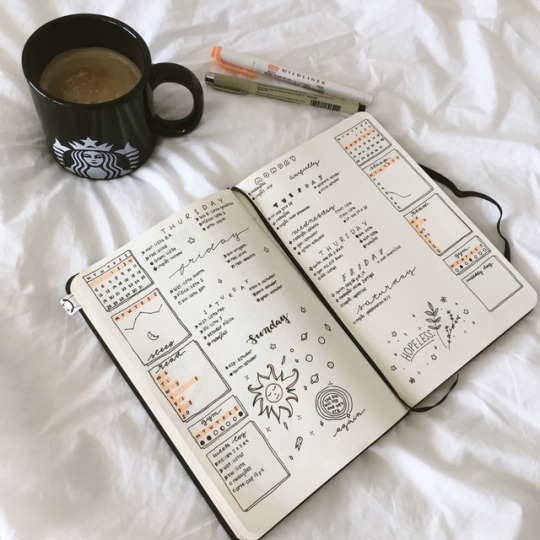

i’m back babes and i finally found out how am i gonna do my bujo
11K notes
·
View notes
Photo

100 Days of Productivity - Day 39/100 March 10, 2018
Modern history revision, done. Economics topic 1 notes, done. Economics assessment revision plan, done. Modern history source analysis, done. Pizza for dinner, yum. Today was a good day.
Insta @ isthisnametakenyet
858 notes
·
View notes
Text
Basic Italian - 1
Io - I Tu - you Lui - he Lei - she, formal way of saying you - (il) Ragazzo - boy (la) Ragazza - girl (l’) Uomo - man (la) Donna - woman - Sono - to be (for ‘io’) e - to be (for lui/lei/Lei) sei - to be (for you, informal) - Lo - masculine, used before Z, S+consonant, GN, and some rarer consonant clusters Il - masculine, used before consonants except the above La - feminine, used before all consonants L’ - an elision of the above used before vowels - Uno - masculine, used before Z, S+consonant, GN, and some rarer consonant clusters. Un - masculine, used in all other cases. Una - feminine, used before all consonants. Un’ - feminine, used before vowels. - (la) mela - apple mangia - to eat (he, she, it) mangi - to eat (you) mangio - to eat (i) (il) pane - bread (l’)acqua - water beve - to drink (he, she, it, you) bevi - to drink (you)
#italian#italian lessons#i'm gonna try to learn italian online#from what i learned on dualingo#langblr#italian langblr
10 notes
·
View notes
Photo
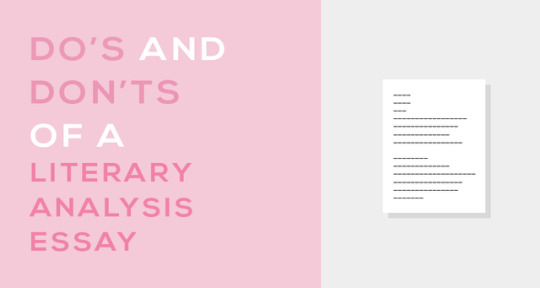
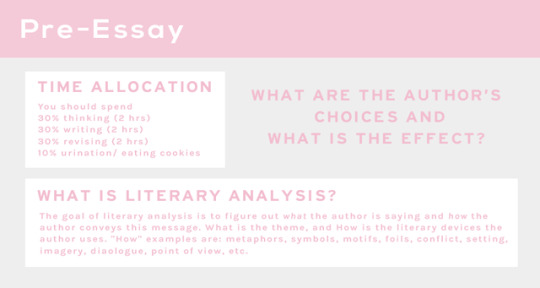
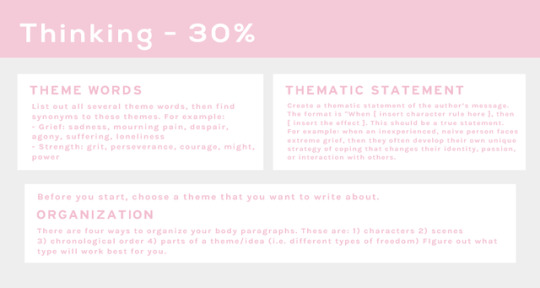
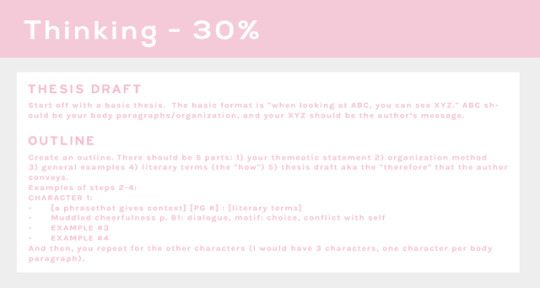
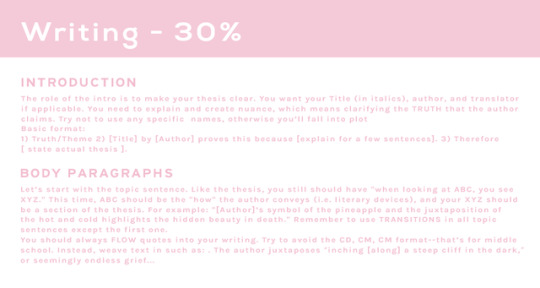
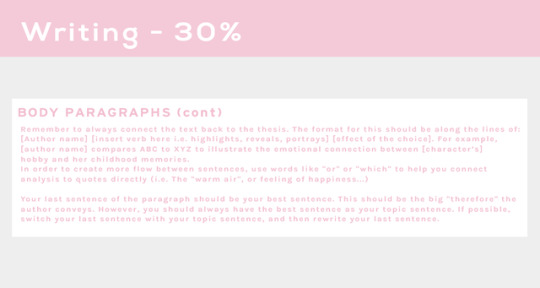
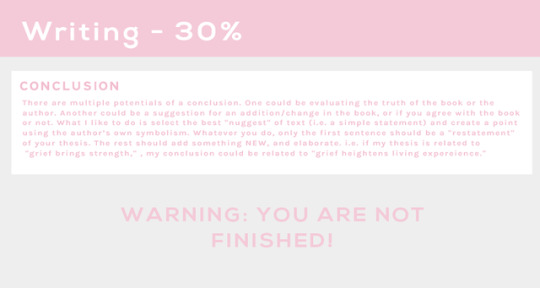

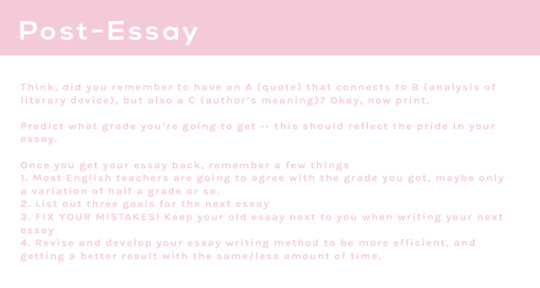
53/100 - my studygram: academiixx | visit my store
masterpost on how to write a literary analysis essay, thanks to the lectures I get from the best English teacher in the world
Okumaya devam et
6K notes
·
View notes


